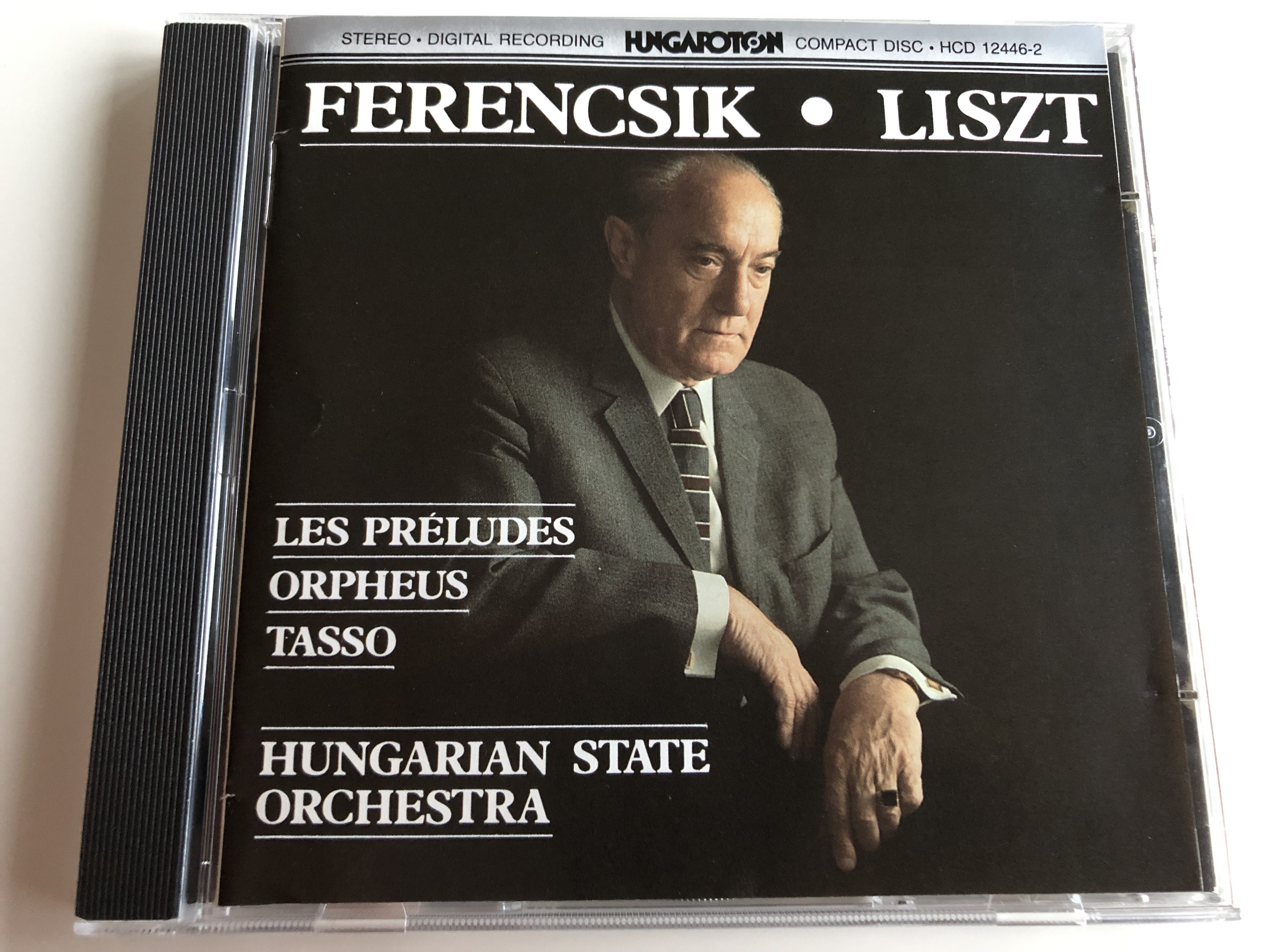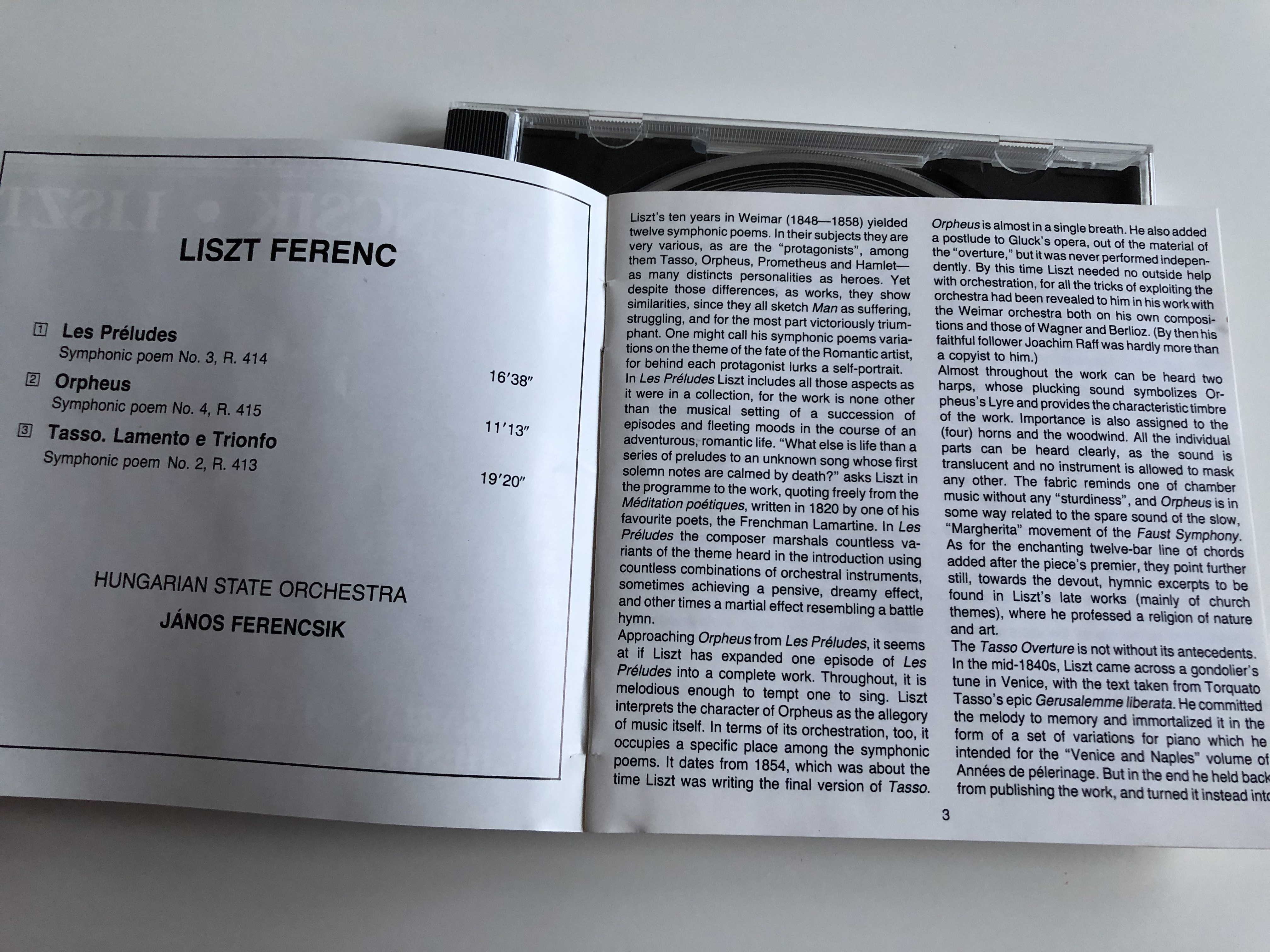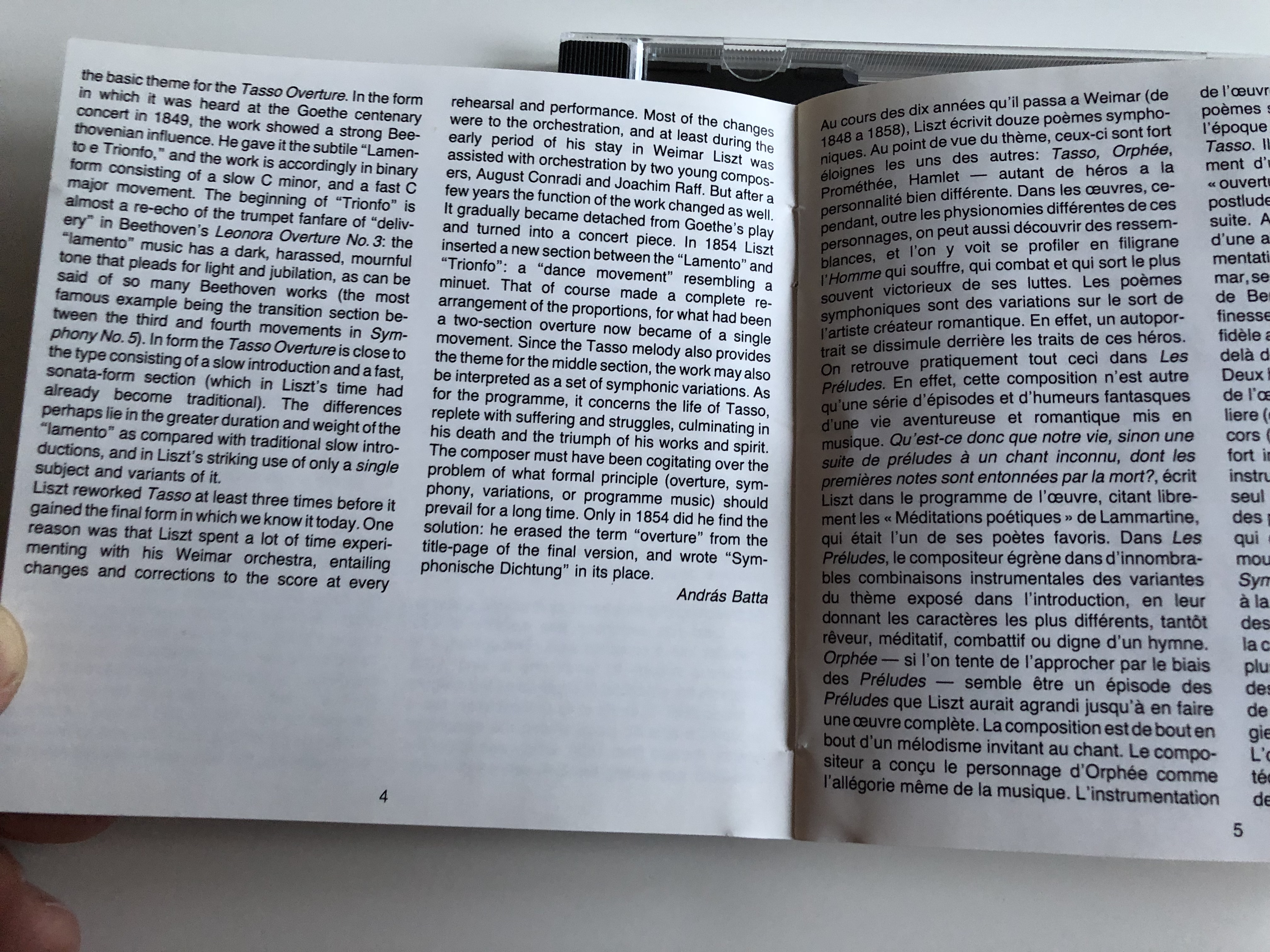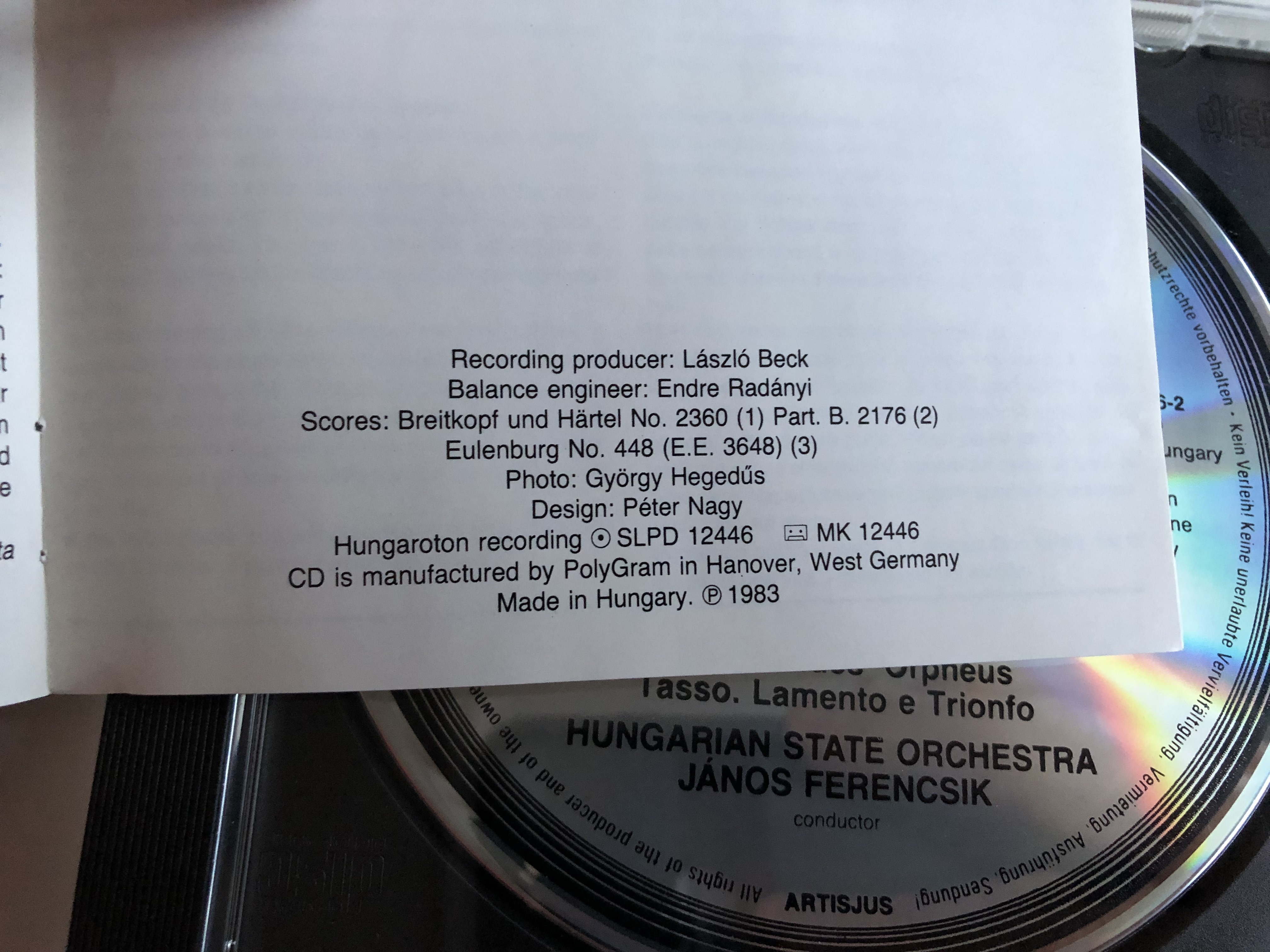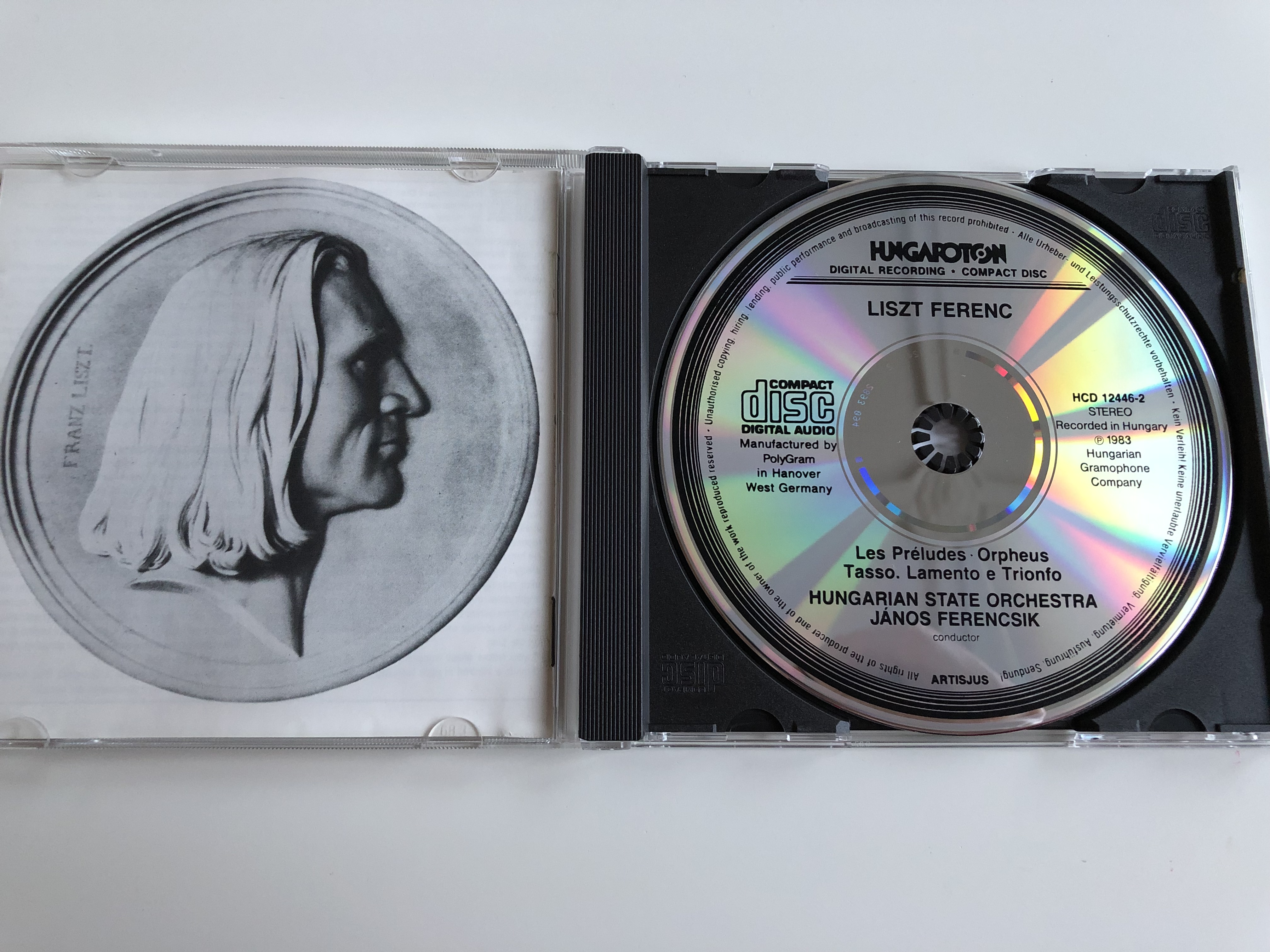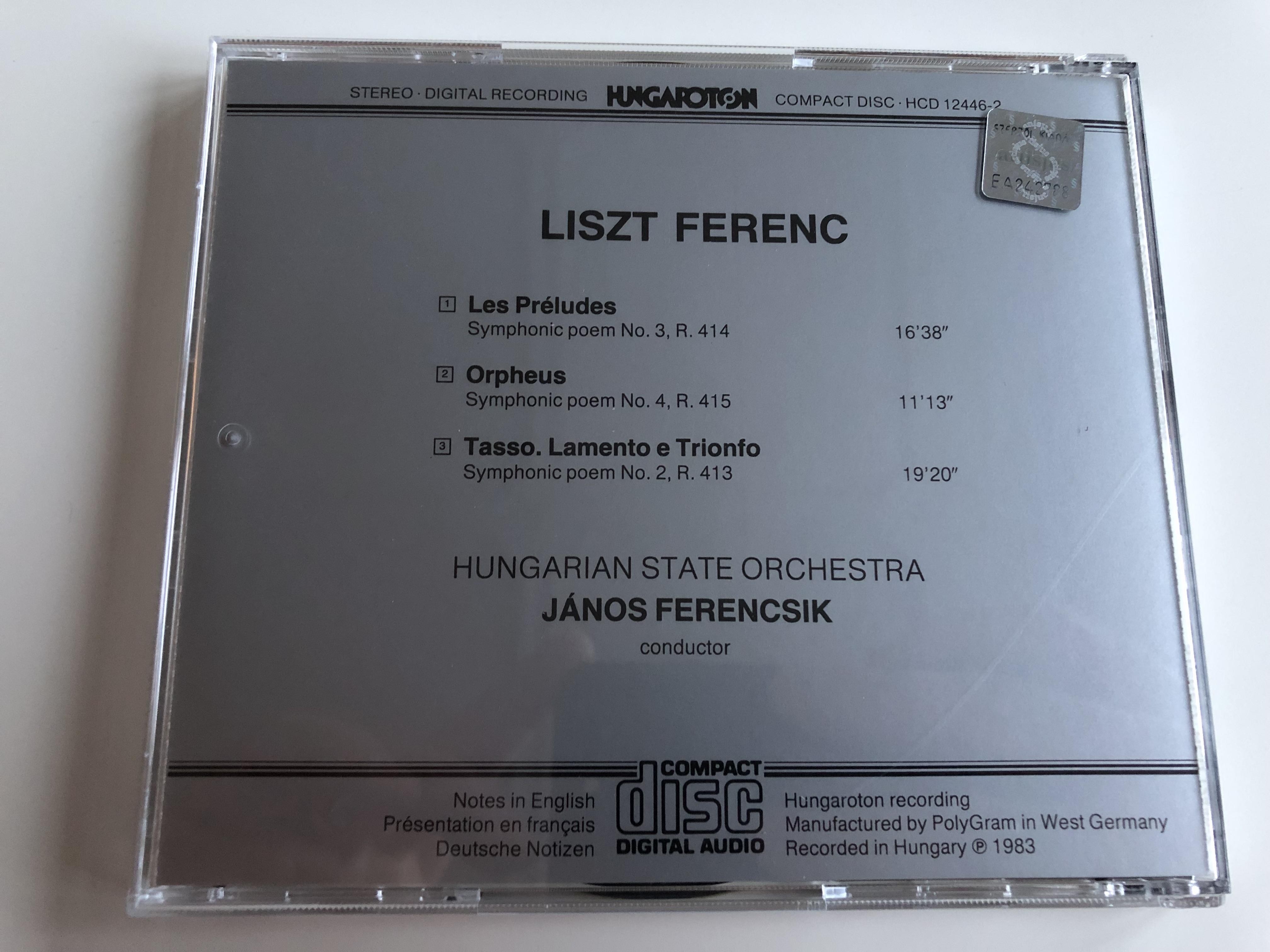Product Overview
János Ferencsik, Liszt Ferenc
Les Préludes, Orpheus, Tasso
Hungarian State Orchestra
AUDIO CD 1983
Hungaroton
HCD12446-2
Recorded in Hungary
Notes English, French and German liner notes
Label: Hungaroton – HCD 12446-2
Format: CD
Country: Hungary
Released: 1983
Genre: Classical
Style: Romantic
Tracklist:
1. Les Préludes (Symphonic Poem No. 3, R. 414) 16:38
2. Orpheus (Symphonic Poem No. 4, R. 415) 11:13
3. Tasso. Lamento E Trionfo (Symphonic Poem No. 2, R. 413) 19:20
Manufactured By – Polygram, Hanover, West Germany
Phonographic Copyright (p) – Hungarian Gramophone Company
Composed By – Liszt Ferenc
Conductor – János Ferencsik
Design – Péter Nagy (3)
Engineer [Balance] – Endre Radányi
Liner Notes – András Batta
Orchestra – Hungarian State Orchestra
Producer [Recording] – László Beck
Made in Hungary
Matrix / Runout: HCD 12446-2 2893 094 01
Rights Society: ARTISJUS
Franz Liszt :in modern usage Liszt Ferenc: 22 October 1811 – 31 July 1886) was a Hungarian composer, virtuoso pianist, conductor, music teacher, arranger and organist of the Romantic era. He was also a writer, a philanthropist, a Hungarian nationalist and a Franciscan tertiary.
Liszt gained renown in Europe during the early nineteenth century for his prodigious virtuosic skill as a pianist. He was a friend, musical promoter and benefactor to many composers of his time, including Frédéric Chopin, Richard Wagner, Hector Berlioz, Robert Schumann, Camille Saint-Saëns, Edvard Grieg, Ole Bull, Joachim Raff, Mikhail Glinka, and Alexander Borodin.
A prolific composer, Liszt was one of the most prominent representatives of the New German School (Neudeutsche Schule). He left behind an extensive and diverse body of work which influenced his forward-looking contemporaries and anticipated 20th-century ideas and trends. Among Liszt's musical contributions were the symphonic poem, developing thematic transformation as part of his experiments in musical form, and radical innovations in harmony.
János Ferencsik (18 January 1907 – 12 June 1984) was a Hungarian conductor.
Ferencsik was born in Budapest; he actively played music even as a very young boy. He took violin lessons and taught himself to play the organ. He studied at the National Conservatory of Music in Budapest, where his major subjects were organ performance and composition. He joined the Budapest State Opera at the age of twenty, where he was engaged as a rehearsal coach. In this capacity he took part in the Bayreuth Festival in 1930-31.
At Bayreuth, he assisted Arturo Toscanini, an experience which was to be of decisive importance for the remainder of his career. Between the two world wars, he studied in Budapest under such conductors as Arturo Toscanini, Bruno Walter, Felix Weingartner and Wilhelm Furtwängler.
Ferencsik's international career began in 1937. By the end of the 1930s, he became one of the Hungarian Opera's leading conductors. He conducted the farewell concert of Béla Bartók and Ditta Pásztory-Bartók in 1940 in Budapest, just before Bartók had left the continent. His artistic career came to full fruition after 1945, as he was appointed General Music Director of the Budapest Opera, Principal Conductor of the Hungarian National Philharmonic Orchestra in Budapest and, from 1960 until 1967, and the Conductor Chairman of the Budapest Philharmonic Orchestra. From 1948 until 1950, Ferencsik was principal guest conductor of the Vienna State Opera, he was guest conductor of the Los Angeles Philharmonic, and toured widely abroad, conducting on every continent with the exception of Africa,
Ferencsik was a friend of Hungarian composers László Lajtha, Béla Bartók and Zoltán Kodály and was known for his interpretations of their works. Among his many recordings are two of Kodály's Székelyfonó. Notable students include Alexander Raichev.
Hungarian State Orchestra
For the Hungarian State Opera Orchestra, please use ANV of Magyar Állami Operaház Zenekara
